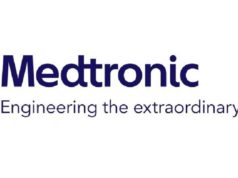
Axonics, a medical technology company that has developed and is commercialising novel implantable rechargeable sacral neuromodulation (SNM) devices for the treatment of bladder and bowel dysfunction, has announced the approval of the Axonics r-SNM system by the US Food & Drug Administration (FDA) for the clinical indications of overactive bladder (OAB) and urinary retention.
The FDA premarket approval grants Axonics the right to market its product in the USA for the clinical indications of OAB (urinary urge incontinence and urinary urge frequency) as well as urinary retention, representing the largest segment of the market for SNM devices. The FDA approval follows the company’s September approval for the clinical indication of fecal incontinence, which, according to published clinical studies, is a co-morbidity reported by as many as a third of patients presenting with urinary urge incontinence.
The FDA approval was supported by the results of a detailed review of technical data and the positive results of the Axonics ARTISAN-SNM 129-patient pivotal clinical study that met all primary and secondary endpoints and demonstrated 90% efficacy for all implanted urinary incontinence patients at six months, as well as published clinical literature.
The Axonics r-SNM System is the first rechargeable SNM system approved for sale in the USA, Europe, Canada and Australia. It is also the only SNM device approved for patients to undergo full-body MRI scan without the necessity of having the device explanted. The FDA approval includes the claim of a 15-year functional life, which is in contrast to the incumbent company’s legacy device which requires replacement on average every four years. In addition to many other differentiating attributes, the system includes a patented tined lead, user-friendly accessories, such as a wireless charging system optimised for infrequent charging, a small easy-to-use key-fob patient remote control and an intuitive clinician programmer that facilitates lead placement and stimulation programming. The long-lived miniaturised neurostimulator is approximately the size of a USB stick.
“If we consider the millions of women who have tried and discontinued OAB pharmaceuticals, the market opportunity for Axonics goes well beyond the approximate US$700 million of revenue that is currently being generated by the incumbent’s non-rechargeable SNM device,” said Raymond W Cohen, CEO of Axonics. “Based on feedback from US physicians, we believe the SNM market is poised to dramatically expand over the next few years given our fuss-free, highly efficacious, long-lived, full-body MRI compatible device. Our USA commercial team of 146 territory managers, clinical support specialists and sales managers rivals the size of the incumbent’s field staff, and is focused on calling on the top 1,000 urologists, urogynecologists and colorectal surgeons who account for approximately 80% of the SNM implants in the USA.”
ARTISAN-SNM pivotal study and the PMA approval process with the US FDA
ARTISAN-SNM was conducted at 14 centres in the USA and five centres in Western Europe. The study met all primary and secondary endpoints and demonstrated that implanted patients received clinically meaningful and statistically significant improvements in urinary incontinence symptoms and quality of life. At the study endpoint of six months’ post-implant, 90% of all 129 implanted patients were therapy responders. At one year, the efficacy remained consistent with an 89% responder rate. The vast majority of implanted patients experienced a significant reduction in urgency incontinence episodes and approximately one third were completely dry. No serious device-related adverse events were reported.
After the initial filing in December 2018, the company filed a number of amendments, including complete test data to support full-body MRI labelling for the implantable components of the Axonics r-SNM System and the full six-month data set from its pivotal study. The FDA conducted two detailed PMA audits of the Axonics quality system and manufacturing during the review period. The audits were completed without any negative observations.













